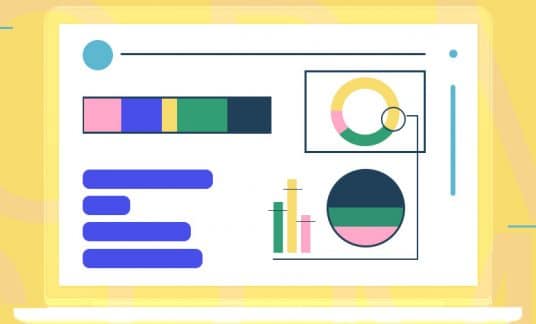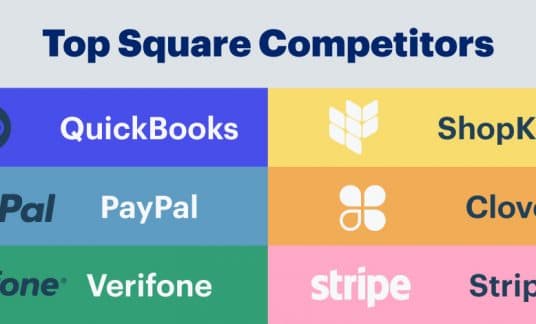Accounting, while a small business necessity, can be time-consuming and tedious. If you aren’t a numbers person, it can be stressful.
That’s where accounting tools come in. They help take away some of the complicated, day-to-day tasks, allowing small business owners to manage their finances better while saving them hours of number crunching.
Seven such accounting tools come to mind.
Why Use Accounting Tools?
In addition to saving you time, accounting automation tools make complicated processes a breeze. They ensure accuracy, whether you’re tracking cash flow, managing expenses and payroll or predicting future performance. These tools help eliminate human error. Some of the more advanced tools can help you spot problems and plan for growth.
Basic Tools of Accounting
The right program will give you access to the basic tools of accounting you need to keep your business finances in order. At a minimum, these tools will help you track spending and better manage your money.
Budget
An accounting program makes it easy to keep track of all incoming and outgoing expenses — and help you plan ahead. This goes beyond a simple spreadsheet: a budgeting tool can help you set financial goals for the year.
Forecasting
Setting financial goals for your business is crucial, but setting realistic goals is even better. Some accounting tools examine economic market conditions along with a company’s sales history and other data to predict potential sales.
Cost-Allocation Analysis
A cost-allocation analysis can help determine how much a small business is spending — and where it is being spent, including the cost of buying goods, raw materials, employee pay and any other expenses. This function also can be used to ensure clients are being billed properly.
Financial Statements
Compiling a company financial data into statements grants small businesses owners an overall picture of performance.
Here are our picks for the seven best business accounting tools (not in order):

Accounting Tools: Best for Business Decision Making
More than 45% of small businesses surveyed for Wasp Barcode Technologies’ State of Small Business Report noted increasing profits as their primary concern. Failing to bring in more cash can mean limiting one’s ability to expand — and may hurt one’s chances of succeeding in the market. For small businesses, increasing profits means increasing your reach.
You’re going to want to take a look at your current financial situation and expected company performance. Two accounting tools for business decision making come to mind:
1. FreeAgent
FreeAgent’s cloud-based software excels in ease-of-use and range of information and report-generating tools. With many tracking options to choose from, you can easily examine any area of business to better track performance and use that information to make business decisions going forward.
2. Xero
Unless your small business is a one-person show, you may not be the only one with ideas about your company’s performance. Unlike most of the accounting tools on this list, Xero allows multiple users for free, making collaboration a breeze. Xero also provides financial overviews and customized reports to let you make better decisions for your business. Xero also integrates with QuickBooks, allowing you to switch from one to the other as your company’s needs change.
Accounting Tools: Best for Performance Evaluation
Tracking your company’s performance isn’t just important when an expansion is in your future. The best accounting tools for performance evaluation make it easy to see where your business is excelling and areas that could use improvement. Check out a couple of the top options on the market today:
3. Harvest
Harvest is a unique accounting tool featuring iPhone and Android apps that allow you to track time and perform bookkeeping duties on the go. For small business owners who aren’t always working out of a conventional office, this software can make it easier to see how much time you’re truly spending on various tasks. Harvest also offers the ability to seamlessly upload your time tracking and bookkeeping data to Excel or QuickBooks for more advanced accounting.
4. Expensify
As the name suggests, Expensify’s game is all about tracking expenses. From snapping photos of receipts on the go to tracking advanced business expenditure, Expensify is designed to help you get a better picture of your business’ cash flow.

Accounting Tools: Best Overall Packages
Whether you’re looking for accounting tools for your small business for the first time or don’t have specific goals in mind, you’re in luck. Several accounting software options stand out as the best overall packages, with tools that can help all businesses better manage their finances, evaluate performance or make critical decisions.
While an all-in-one option may come with a higher price tag, it makes it easier to minimize errors across all platforms while keeping company books better organized.
5. Sage Accounting
For small businesses run solely by the owner, Sage Accounting is a great choice. Starting at $10 a month, it makes it easy to track expenses and profits and even manage projects. Advanced packages offer many of the accounting tools featured in pricier options, such as cash-flow forecasting and the ability to bill vendors, for $25 a month.
6. QuickBooks Online
QuickBooks, Intuit’s flagship accounting software, is a household name. With a variety of versions, tools and an accessible format, QuickBooks Online makes it easy to get started with online accounting tools right away. Small business owners will appreciate the streamlined experience, while those seeking more advanced accounting will enjoy the advanced tools, like profit and loss statements and common-size analysis.
7. FreshBooks
While it once offered only basic invoicing and expense tracking, FreshBooks is loaded with accounting tools. As with QuickBooks Online, FreshBooks offers a simple, streamlined approach to basic and advanced tools, including payroll processing, financial reports, timesheets, and more. They also provide free, person-to-person customer service, which makes it easy to get help when you need it.
Choosing the Right Accounting Automation Tools
According to research conducted by OnePoll in conjunction with Lendio, 77% of small businesses are backed by personal funds. Failing to track spending accurately or never looking ahead to see what financial state your business might be in a few months can spell disaster not just for your business, but for your personal bank account.
Whether you’re still operating on your own personal finances or your business is generating its own, managing your money effectively is a must. Automation tools take some of the stress out of accounting while giving small business owners access to important financial tools.









